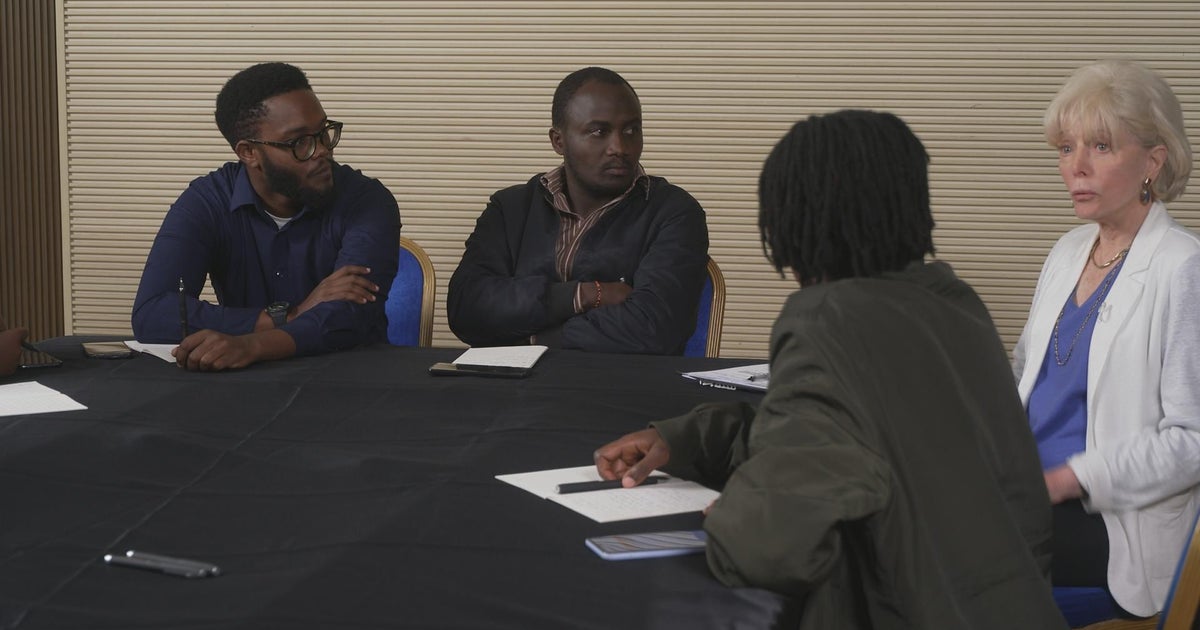CBS News
How Kenya became the “Silicon Savannah”

Africa has a jobs crisis on the horizon.
Home to the youngest, fastest-growing population on the planet, the continent is set to be home to one in four people on Earth by 2050, according to the United Nations. And this population will, of course, need to work.
In Kenya, President William Ruto is banking on technology as an answer. He is positioning his country — and its capital city Nairobi — as a tech hub on the African continent. But how countries like Kenya try to create jobs — and whether the jobs will pay a living wage — will be a challenge of the next quarter century.
The “Silicon Savannah”
Often referred to as the “Silicon Savannah,” Nairobi is at the forefront of Africa’s tech revolution.
“This Silicon Savannah is very real,” said former U.S. ambassador to Kenya Meg Whitman, who stepped down from her post earlier this month.
Whitman, who previously ran both eBay and Hewlett-Packard, was chosen by President Biden to be America’s representative to Kenya because of her business and tech background.
In an interview with 60 Minutes, Whitman pointed to growth in Kenya coming from a robust venture capital community, high-quality universities that provide serious academic investments in tech, and tech jobs coming to the country, such as full-stack code engineering and business process outsourcing.
This tech boom in Kenya, Whitman said, has been anchored by M-Pesa, a pioneering mobile money transfer service that has turned even the simplest mobile phones into secure bank accounts.
M-Pesa began Kenya’s push into technology and innovation in 2007, when Safaricom, Kenya’s largest cellphone provider, began the initiative as a way for people to send and receive money through texting, without needing a bank account.
“That launched Silicon Savannah in many ways, sort of like [Hewlett-Packard did] in Silicon Valley,” Whitman said.
In 2015, 60 Minutes correspondent Lesley Stahl reported on M-Pesa. She watched as people around the country used it to pay for everything, from taxi rides to new cows — even clean solar energy.
“People don’t buy a packet of cigarettes. They’ll buy a cigarette,” Bob Collymore, then the CEO of Safaricom, told 60 Minutes in 2015. “And so, we need to be operating at that level. People don’t buy a tube of toothpaste. If you go into the slums, you will see people buy a squeeze of toothpaste. And so, you have to operate at that micro level.”
It’s no longer just the micro level. Today, M-Pesa is used across Africa. According to the company, the platform enabled more than 28 billion transactions in eight countries in its last fiscal year — amounting to more than $310 billion.
M-Pesa is not alone in making Nairobi a tech capital. There are places, like the innovation center i-Hub, which help tech entrepreneurs grow their ideas.
There are companies, like the Nairobi-based Ushahidi, a nonprofit that leverages data for crisis response and election monitoring around the globe.
And there’s investment. Earlier this year, Microsoft and the UAE-based AI firm G42 pledged $1 billion toward expanding Kenya’s digital ecosystem.
But growth like this can have its shortcomings.
As Stahl reported this week on 60 Minutes, American tech giants like Meta and Open AI have been contracting middle-man companies to hire Kenyan workers for their operations. Those employees tell 60 Minutes that their work is mentally draining and emotionally harmful, there’s no job security, and the pay is dismal.
Whitman said Kenya must work to protect employees if it wants to become the global tech player it aspires to be.
“We’ve been working quite hard and have heard the complaints about, you know, respect for workers, decent pay, working conditions. And Kenya is getting there,” Whitman said in an interview before she resigned her post. “They need to update their labor laws to the 2010 Constitution. There’s more work to be done.”
Whitman said that, while Kenya is the tech capital of East Africa, it could reign supreme on the entire continent. “Getting the right laws in place, getting Kenya labor law updated, and applying influence is an important thing to do.”
Another important thing to do, according to Whitman, is to attract investment in Kenya’s tech space to help the country create jobs — especially for young people. She noted that approximately less than one-third of college graduates in the country end up finding a job that requires a college degree.
“If the jobs aren’t created, what will be the future of this continent in 20 years?” Whitman said. “It will not be what it could be.”
The video above was produced by Brit McCandless Farmer. It was edited by Scott Rosann.
CBS News
UATX says it fights college censorship culture with a focus on free speech | 60 Minutes

Watch CBS News
Be the first to know
Get browser notifications for breaking news, live events, and exclusive reporting.
CBS News
“The Future of Money” | 60 Minutes Archive

Watch CBS News
Be the first to know
Get browser notifications for breaking news, live events, and exclusive reporting.
CBS News
60 Minutes returns to Notre Dame

Watch CBS News
Be the first to know
Get browser notifications for breaking news, live events, and exclusive reporting.





